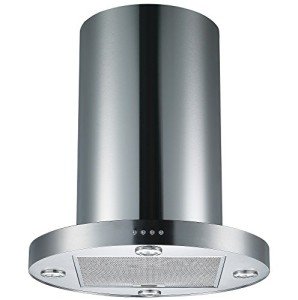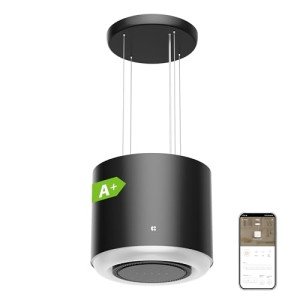Island Extractor Hoods Tools To Improve Your Daily Life Island Extract…
페이지 정보
작성자 Sheena Yazzie 댓글 0건 조회 4회 작성일 25-05-20 11:00본문
Island Extractor Hoods: The Ultimate Guide to Choosing and Maintaining Your Kitchen's Ventilation System
In contemporary kitchens, an island extractor hood is not just a functional necessity, it likewise works as a focal point that enhances the aesthetic of the space. As open-concept living environments continue to rise in appeal, understanding the functions, benefits, and upkeep of island extractor hoods becomes important for property owners. This article will explore the various aspects of island extractor hoods, helping readers make informed decisions based upon their kitchen requires.
What Are Island Extractor Hoods?
island ventilation hoods extractor hoods are ventilation systems designed to be mounted above kitchen islands, making sure effective air purification while mixing perfectly with the kitchen's style. Unlike conventional range hoods that are usually installed against a wall, island hoods are suspended from the ceiling, which uses more flexibility in kitchen designs.
The main function of an island extractor hood is to eliminate air-borne grease, smoke, steam, and smells created throughout cooking, thus improving indoor air quality. This is particularly essential in open-concept homes where the kitchen is integrated into the home.
Advantages of Island Extractor Hoods
There are numerous advantages to setting up an island extractor hood in your kitchen:
Improved Air Quality: They filter and expel contaminants, ensuring a healthier cooking environment.
Style Flexibility: Available in different sizes, designs, and finishes, they can match any kitchen style.
Boosted Lighting: Many models come equipped with integrated lighting, island extractor hoods illuminating the cooking surface area listed below.
Noise Reduction: Modern models are created to run quietly, decreasing disturbances in an open-concept design.
Improved Home Value: A well-chosen island hood can increase the visual and functional appeal of a kitchen, thereby enhancing residential or commercial property value.
Key Features to Consider
When choosing an island extractor hood, several functions should be taken into consideration:

| Feature | Description |
|---|---|
| Size | Pick a hood that is equivalent to or a little larger than the cooking surface area measurement. |
| Extraction Rate | Measured in CFM (cubic feet per minute), this rate shows how much air the hood can move. |
| Filtering Type | Choices include ducted (vented) and ductless (non-vented) systems, depending on home layout and preferences. |
| Control Type | Consider easy to use controls; options include mechanical buttons, touch controls, or remote controls. |
| Sound Level | Examine the sone ranking; lower scores suggest quieter operation, crucial for open areas. |
| Lighting | Search for models with built-in LED lights for improved presence while cooking. |
Installation Types
There are 3 main setup types you can pick from for island extractor hoods:
Ducted Hoods: These use ductwork to expel air outside the home. They are typically more efficient but require a more intricate installation procedure.
Ductless Hoods: These recirculate filtered air back into the kitchen. They are much easier to install but might require more frequent filter replacements.
Convertible Hoods: This type can be adapted to operate as either ducted or ductless, offering versatility based on the homeowner's requirements.
FAQs About Island Extractor Hoods
What is the perfect height to set up an island extractor hood?
The ideal height for setup is normally 30-36 inches above the cooking surface area. Nevertheless, this could differ depending on the particular design and the user's height.
How do I clean and preserve my island extractor hood?
Routine upkeep is vital for optimum performance.
- Clean the exterior using a mild soap option and a soft fabric.
- Change or tidy filters as recommended by the producer.
- Ensure the ducting system is clear of blockages if utilizing a ducted model.
How frequently should I change the filters?
For ductless hoods, charcoal filters must ideally be replaced every 6 to 12 months, while grease filters might need more frequent cleansing, such as every 2-4 weeks, depending upon usage.
Are island extractor hoods energy-efficient?
Many designs are created with energy-efficient motors and LED lighting alternatives. Try to find items that boast ENERGY STAR accreditations or similar scores.
Can I set up an island extractor hood myself?
While some might choose to carry out the installation, it's suggested to work with a professional, especially for ducted systems, to make sure security and proper fitting.

Upkeep Tips for Island Extractor Hoods
To guarantee durability and effectiveness, consider the following upkeep practices:
Regular Cleaning: Clean grease filters, baffle filters, and the exterior surface regular monthly to prevent accumulation.
Inspect Ductwork: Inspect duct systems for clogs or damage every six months, making sure optimal airflow.
Change Filters: Follow maker guidelines for changing or cleaning filters to keep air quality.
Display Performance: If you notice reduced air flow or increased sound, it might be time to seek advice from an expert for repair work or servicing.
Island extractor hoods have actually progressed considerably, offering innovative functions and capabilities that not only enhance kitchen efficiency but also elevate home aesthetic appeals. By carefully considering size, filtration type, and setup preferences, property owners can pick the ideal island extractor fan hood for their needs. Routine maintenance ensures performance and toughness, making this kitchen island hoods home appliance a valuable financial investment for any home. Whether upgrading an existing hood or installing a brand-new one, understanding these systems is vital for attaining a functional and elegant kitchen environment.
댓글목록
등록된 댓글이 없습니다.